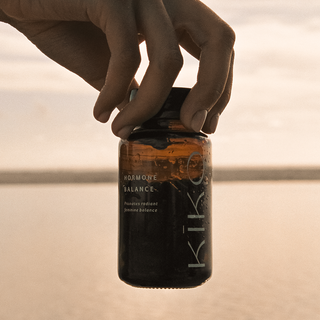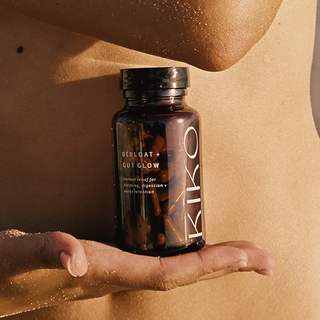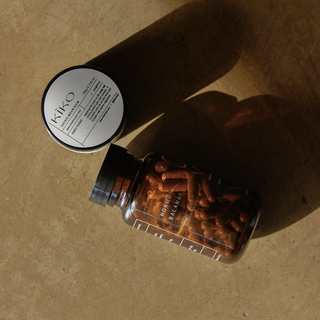
Often referred to as the transition phase before menopause, perimenopause is a significant period in a woman's life marked by various hormonal changes. This phase can begin as early as the mid-30s or as late as the mid-50s, and can last anywhere from a few months to over a decade. Understanding perimenopause and knowing how to manage its symptoms naturally can help you navigate this transition with greater ease and well-being…
Symptoms of Perimenopause
Perimenopause is characterised by fluctuating levels of estrogen and progesterone, leading to a range of physical and emotional symptoms. Common symptoms include:
- Irregular Periods: Changes in menstrual cycle length and flow.
- Hot Flashes and Night Sweats: Sudden feelings of heat and sweating.
- Sleep Disturbances: Difficulty falling or staying asleep.
- Mood Swings: Increased irritability, anxiety, and depression.
- Vaginal Dryness: Reduced estrogen levels leading to dryness and discomfort.
- Decreased Libido: A reduction in sexual desire and arousal.
- Weight Gain: Often around the abdomen due to hormonal changes.
- Cognitive Changes: Memory lapses and difficulty concentrating.
Natural Solutions for Managing Perimenopause
While perimenopause is a natural phase of life, its symptoms can be managed effectively through various natural interventions, including diet, supplements, exercise, and lifestyle changes.
Diet
- Balanced Nutrition: Focus on a diet rich in fruits, vegetables, whole grains, lean proteins, and healthy fats. Foods high in phytoestrogens, like soy, flaxseeds, and chickpeas, can help balance hormones.
- Foods Rich in Calcium and Vitamin D: These nutrients are crucial for bone health, which can be compromised during perimenopause. Include dairy products, leafy greens, and fortified foods in your diet.
- Hydration: Drink plenty of water to help with hot flashes and overall well-being.
- Reduce Caffeine and Alcohol: These can trigger hot flashes and disrupt sleep. Opt for herbal teas and limit alcohol consumption.
Supplements
Incorporating certain supplements and herbs can significantly ease the symptoms of perimenopause.
- Ashwagandha is known for its adaptogenic properties, helping to reduce stress and improve sleep.
- Magnesium citrate supports muscle relaxation and enhances sleep quality.
- Red raspberry leaf and red clover are rich in phytoestrogens, which can help balance hormone levels and alleviate hot flashes.
- Chaste berry (vitex) is effective in regulating menstrual cycles and reducing PMS symptoms.
- Maca is an energy booster that can help improve mood and libido.
- Black cohosh is a well-known remedy for hot flashes and night sweats.
- Dong quai is used in traditional Chinese medicine to improve blood flow and alleviate menstrual cramps.
- Vitamin E acts as an antioxidant and can reduce the severity of hot flashes.
- Zinc supports immune function and skin health, which can be beneficial as hormonal changes affect the body. Together, these supplements and herbs provide a natural approach to managing the diverse symptoms of perimenopause, promoting overall health and well-being.

Did You Know?
The Kiko Vitals Menopause Balance supplement contains all of the above essential ingredients and more, making it helpful for perimenopause as well as menopause.
Exercise
- Regular Physical Activity: Aim for at least 150 minutes of moderate aerobic exercise, such as walking or swimming, per week. This can help with weight management, mood, and overall health.
- Strength Training: Build muscle mass and bone density with weight-bearing exercises like lifting weights or resistance bands.
- Yoga and Pilates: These practices improve flexibility, reduce stress, and enhance overall well-being.
Lifestyle Interventions
- Stress Management: Practice mindfulness, meditation, and deep breathing exercises to reduce stress levels.
- Adequate Sleep: Establish a regular sleep routine, create a comfortable sleep environment, and avoid screens before bedtime.
- Social Support: Stay connected with friends and family to combat feelings of isolation and depression.
- Routine Health Check-ups: Regular visits to your healthcare provider can help monitor and manage symptoms effectively.
Conclusion
Perimenopause is a natural and inevitable phase of a woman’s life, but it doesn't have to be a difficult one. By adopting a holistic approach that includes a balanced diet, targeted supplements, regular exercise, and mindful lifestyle changes, women can manage their symptoms and maintain a high quality of life during this transition. Embracing these natural solutions not only alleviates discomfort but also promotes overall health and well-being, empowering women to thrive through perimenopause and beyond.




